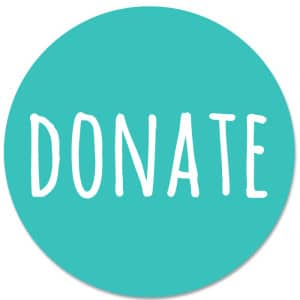Mothers Helpers is in the business of preventing the serious consequences of postnatal depression. Take a look at our other pages to see what those might be. One thing I’d love to be able to prevent is what I call chronic depression. For many people, depression does not have to be something they live with – if treated early and treated well, they can make a full-recovery. And they can prevent a relapse from occurring. But there are those who live with depression and for those of us who do, as John Kirwan often says, wellness is the goal.
So what does wellness mean to you? To me, it means that most of the time I don’t spiral into a pit of despair, invariably, I’m able to cope with what life brings, I am a fully functional human being – able to contribute to society, hold down a job (and one with a lot of responsibilities), care for my son, continue my studies. What it doesn’t mean is that I’m bullet-proof or that I never suffer from lows. In fact, I still have times where the stress is too much, that depression is interfering with my relationships and I’ve become more irritable and argumentative than usual, or that I’m very sensitive to the words and actions of others and the spiral of negative thoughts begins to take me down to that familiar place.
Despite our theme of last year’s Postnatal Depression Awareness campaign “Breaking the Silence” to a large extent I still live with depression in silence. I rarely talk about it with other people and when I do, they are carefully chosen trusted people in my life who I know will understand me, who will not judge me, and who still believe in me. I continue the silence because I am afraid of being labelled as “a person with a mental illness” and therefore dismissed and the other things that are true about me, ignored. That I am a business woman with skills in leadership, management, governance, education and experience in the medical field (among other things). That I’m a brave person who will stick my neck out at the risk of being criticized for the sake of others or what I believe to be an important and worthy cause. Or that I’m a kind person with enormous compassion for those who suffer and a passion to do something to help them. And so much more. The fear is that if I announce my struggle to someone that they will not see any of that, and suddenly I’ll be defined by the mental illness that I have.
It’s because of my silence and the silence of others afraid to share that depression is so misunderstood. It calls for leaders like John Kirwan to be brave in their conversations and become more open about their experience. When depression is misunderstood and not discussed, it remains a stigma, people are still afraid to seek help and support and don’t get the information and treatment that they need – as if depression is not isolating enough on its own! A big part of the pathway to wellness is community and support…
I live with Depression. This means that most of the time I am well and do not suffer from symptoms. I cope with a lot of stress as ongoing long-term stress is what led me here – but I’m working on changing what I can and accepting what I can’t. I contribute a great deal to my community. I am a smart, intelligent woman with something to say, and I love to laugh and have fun too. I’m a devoted mother and a kind and loving person. I have always been outspoken. I learn by talking and interacting – much to my school teachers’ dismay (and sometimes the impatience of my university lecturers). I need to contribute. Sometimes that means I blunder my way towards unwanted attention/trouble and people easily get the impression that I’m made of tough stuff when I’m actually made of goo. When depression and that aspect of my personality get together, it seems they go looking for an argument. It’s the “irritability” symptom of depression that has never really left me, and comes out when I’m overwhelmed with stress. And the resulting conflict sends me into a spiral. Like a child, I must learn to avoid unnecessary conflict wherever possible, I must learn how to challenge thoughts that are so negative and accusing in their nature when conflict occurs to prevent the spiral spinning out of control, and I must get myself out into the garden or to the beach for a walk in the sunshine to stop it in its tracks. But hiding my struggle away does not serve me. Perhaps if I were to speak about it, I might gain some understanding, some grace, some compassion – perhaps even some support?
Kristina Paterson
Mothers Helpers Founder
